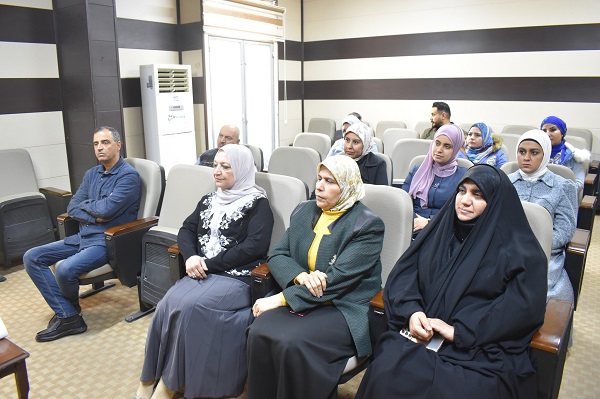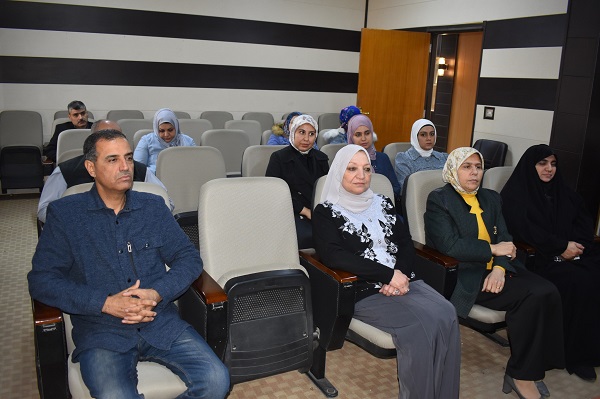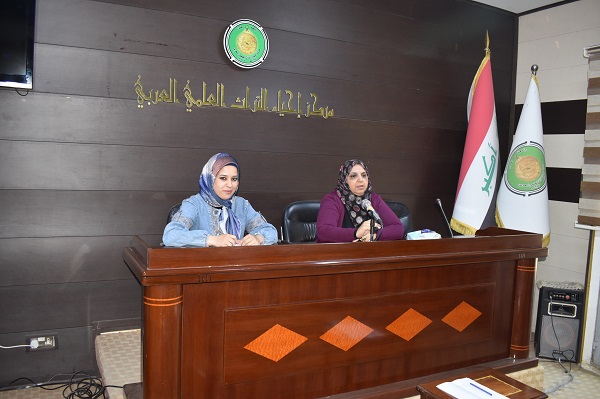the religion and cultural variety and its effect on Iraqi society
Under the supervision by prof. Dr. Alaa N.Jasim (the director of the center) , the department of Baghdad documentation in the center of heritage revival /university of Baghdad , the center organizes workshop entitled (the religion and cultural variety and its effect on Iraqi society ) , the lecture is presented by instructor Dr. Leqaa Shaker Khattar (one of the center’s members) who talked about the most states raq is one of the most diverse countries in terms of religion and culture, as it includes many spectrums of religions, sects and nationalities. In fact, this diversity has been throughout history a source of civilizational and cultural purchase and has contributed to the formation of an Iraqi identity rich in cultural heritage of arts, literature, architectural heritage, customs and traditions. Iraq has become difficult to overcome sub-identities in favor of a unified national identity. In order to achieve this, several things must be available, including strengthening the role of the law and protecting all components according to the principle of citizenship, far from sectarian or national discrimination, and encouraging dialogue between religions and sects. Al-Sharifi stressed the encouragement of responsible media and the dissemination of a culture of moderation and tolerance and the rejection of the discourse of violence and hatred, as M.M. also added. Walaa Diaa Nassif, a lecturer at our center, spoke about Iraq, one of the societies characterized by sects, religions and nationalities through cultural diversity that stems from a vision that ultimately seeks to establish new cultural values that seek to embody peaceful coexistence. Achieving peaceful coexistence is gaining increasing importance in the current stage and current circumstances as it represents a social and security value. This underscores the importance of such topics that come within the framework of presenting a social role in achieving peaceful coexistence in light of cultural diversity. In conclusion, the workshop included several interventions on the topic, and the director of the center thanked the two researchers, wishing them continued success in serving our university and our beloved Iraq











